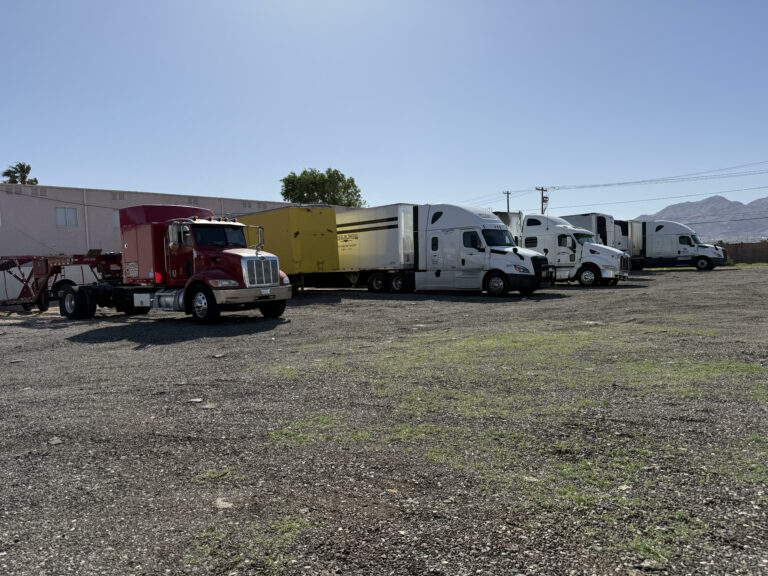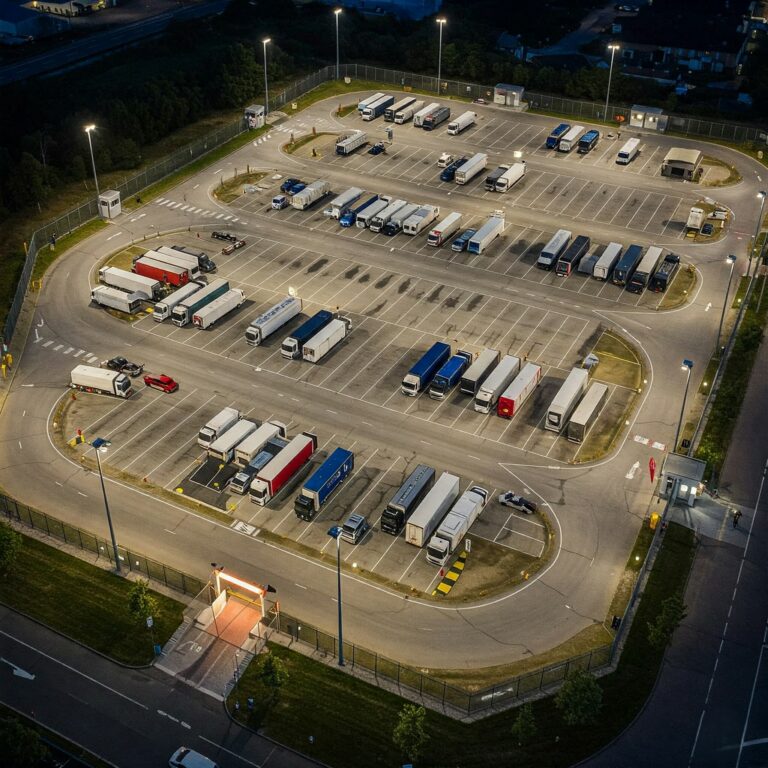
LAS VEGAS, Nev. – Nevada’s Hispanic trucking community is sounding the alarm over a looming parking crisis in Clark County, warning that a $500 delivery surcharge could take effect July 1 if the situation isn’t addressed.
Truck drivers say they are rapidly losing access to designated parking areas, with several truck yards across the Las Vegas Valley—such as one near Las Vegas Blvd. and Nellis Blvd.—shutting down due to zoning violations.
For many truckers, these yards have served as a convenient place to leave their vehicles after a shift. However, the growing difficulty stems from lot owners operating without proper zoning or permits. As authorities step up enforcement of long-standing regulations, independent drivers are left scrambling for legal parking options.
While all drivers are impacted, the group notes that Hispanic truckers are disproportionately affected, as they make up the majority of independent owner-operators in the region.
“The problem is that there’s not enough parking,” said Dunia Antunez, spokesperson for the association. “Drivers are being ticketed $500 to $800 for parking in residential areas or on the street because they have nowhere else to go.”
Unless county leaders take swift action, the group plans to impose a $500 delivery fee on shipments arriving in Clark County starting July 1.
Antunez called on county commissioners to halt the closure of long-term parking areas and invest in more facilities. “We have too many truckers and not enough parking,” she said.
Clark County Commissioner Tick Segerblom, who represents the area with the affected yard, acknowledged the issue but pointed out that the property in question was never legally zoned for commercial trucking use.
“There are multiple code violations,” Segerblom said. “The yard doesn’t have a business license, and it’s not zoned for that kind of activity.”
Segerblom explained that the surrounding area is transitioning from industrial to residential, and the presence of large trucks and diesel fumes is incompatible with neighborhood life.
“You wouldn’t want a truck yard in your residential neighborhood,” he said.
Despite the current restrictions, Segerblom expressed sympathy for the truckers and said the county is working on new policies to establish legal, regulated truck yards in properly zoned areas.
“We’re looking at paving requirements, appropriate locations, and special use permits,” he noted. However, he cautioned that the process may take several months. In the meantime, proposals for legally zoned lots will be reviewed on a case-by-case basis.






